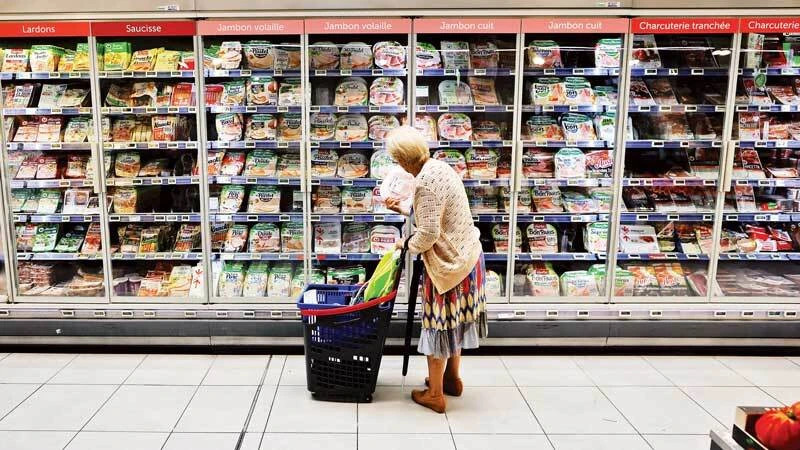The Eurozone economy is facing many difficulties, including the cost of living crisis and concerns about falling global demand.
The region has overcome the serious impacts of the COVID-19 pandemic and the conflict in Ukraine, but experts worry that the Eurozone economy will continue to be negatively impacted by the current Hamas-Israel conflict. According to Eurostat, the economy of the group of 20 countries in the Eurozone decreased by 0.1% in the third quarter, after decreasing by 0.2% in the previous quarter. However, the region still shows signs of recovery, albeit slowly, when the economic growth of the 27-member European Union (EU), including countries that do not use the Euro, reached 0.1%.
In particular, Germany's GDP decreased slightly in the third quarter, in the context that Europe's leading economy continued to be under pressure from weak purchasing power and rising interest rates. According to the German Federal Statistical Office (Destatis), Germany's GDP decreased by 0.1%, lower than the Reuters survey forecast for a decrease of 0.3%. The German economy is expected to regain growth momentum from the end of this year and will be accelerated next year. It is forecast that Europe's leading economy will grow again in 2024 and 2025, with increases of 1.3% and 1.5%, respectively.
Meanwhile, the National Institute of Statistics and Economic Studies (INSEE) estimates that the French economy in the third quarter of 2023 will grow by 0.1% compared to the second quarter, in the context of a sharp increase in consumer spending. However, this growth rate decreased sharply from 0.6% in the previous quarter.
For the whole year 2023, INSEE forecasts that the French economy will grow by 0.9%, equivalent to the assessment of the Bank of France. French consumer spending increased by 0.7%, especially on food, in the context of still high inflation. Business investment remains the growth driver and increased by 1.5%. However, after the second quarter of strong growth, the country's exports decreased by 1.4% in the third quarter. Manufacturing and services both decreased by 0.3%. Despite achieving low growth, in a recessionary environment, the French economy is said to remain stable.
Eurostat data also shows that Eurozone inflation decreased from 4.3% in September to 2.9% in October, lower than the forecast of more than 3%. The inflation rate in October fell to the lowest level since July 2021 and decreased compared to the peak of 10.6% in October 2022 after the Russia-Ukraine conflict broke out, pushing energy prices up.
In the context that fighting inflation is the number one priority, despite concerns that raising interest rates could cause a severe recession in the Eurozone, on September 14, the ECB raised interest rates for the 10th consecutive time since July 2022, to a record high of 4%, to cope with soaring consumer prices.
However, ECB policymakers also signaled that this may be the bank's last interest rate increase. According to veteran economist Tomas Dvorak of Oxford Economics, Europe's inflation forecast will fall below the ECB's 2% target by 2024.
The continued declines in energy prices and cooling food price increases are key drivers for the European economy. According to Eurostat, energy prices in October continued to decrease sharply by 11.1%, after decreasing by 4.6% in the previous month. The increase in food and beverage prices also slowed, increasing only 7.5% in October compared to an increase of 8.8% in September.
Although economic growth is still slow, with positive signs from the fight against inflation and additional growth drivers, many European countries are expected to enter a more solid recovery period.
















